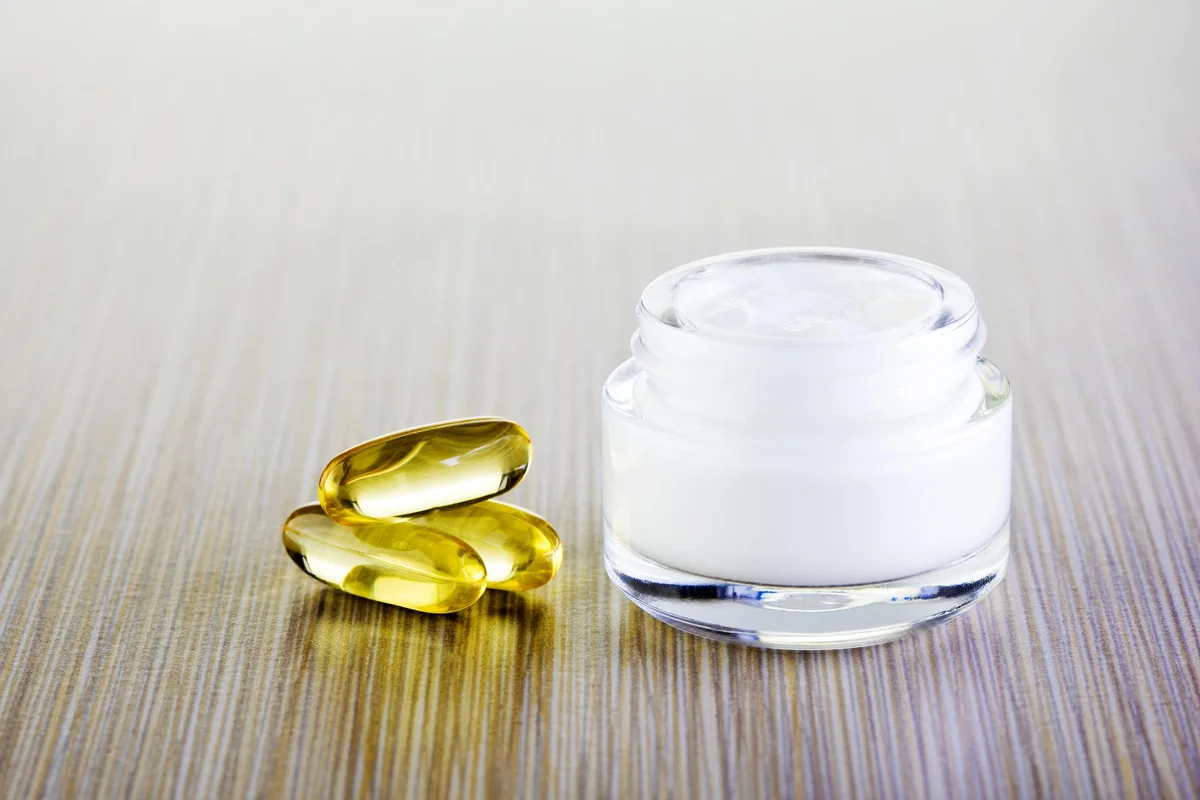Collagen is an unsung hero in our bodies that seems to finally be having its day. Ever since Jennifer Aniston went public with her support for a particular collagen supplement, it's been getting a lot of attention in the media. Could this be the secret behind her seeming inability to age, her perfect hair and her shining skin?
It got us wondering: What exactly is collagen, and is taking it actually good for you? We reached out to Dr. Elizabeth Liotta, a dermatologist and member of the HealthyWomen Women's Health Advisory Council, to get the scoop.
What is collagen and what does it do?
Collagen is a protein. In fact, it's the most abundant protein in your body. There are at least 16 types, but the most common are Type I, Type II, Type III and Type IV.
Collagen is made up of strong and stable fibers that work like glue to hold things in your body together and strengthen them. You can find collagen everywhere, from head to toe, including hair, muscles, bones, tendons, ligaments, organs and all over — in your skin. Collagen also creates elasticity that allows us to move, bend and stretch. This includes creating skin elasticity, which is why it can help keep your skin looking youthful.
What is collagen made of?
Collagen contains 19 different amino acids, with a lot of hydroxyproline, which is not found in any other amino acids and helps your skin heal and glycine, which helps your cells grow and stay healthy, allowing your muscles and brain to work better and your body to remove glucose from your bloodstream, among other things.
Collagen peptides serve as the building blocks to naturally produce collagen or other proteins needed by the body. They also act as antioxidants that work to prevent the breakdown of bundles of collagen, called collagen fibers.
How does aging affect the natural production of collagen?
As you age, you begin to lose the collagen in your body, and it becomes harder for you to make more. Symptoms such as joint pain, stiff tendons or ligaments, as well as papery, wrinkling skin are signs that your body is producing less collagen.
Are there ways we damage the natural production of collagen?
Yes, collagen can be damaged by a high sugar diet and smoking, both of which cause inflammation in the body. Too much exposure to ultraviolet light from the sun can also gradually damage the collagen fibers in your skin, which can lead to sun damage. This sun damage can be seen in skin biopsies, but it is also common to witness the damage in sagging skin and wrinkles.
Are there ways to promote the production of collagen?
There are several ways to promote the natural production of collagen. Using retinol can help protect the collagen you do have and make it last longer. Red light therapy, also called low-level laser light therapy (LLLT), can help smooth out wrinkles, improve skin elasticity and stimulate collagen growth. You can also help your body make more collagen through your diet. Eating high protein foods like red meat, chicken skins and thighs, and bone broth. Other nutrients, like vitamin C, zinc and copper, also play a part. You can get vitamin C from citrus fruits, tomatoes and leafy greens. For zinc and copper, try fish, shellfish, nuts, whole grains, beans and gelatins. And, last but not least, wearing sunblock can help protect your skin, so less collagen needs to be used to replace damaged cells.
Are collagen supplements beneficial?
Collagen in its whole form is too large to be absorbed by your body and must be broken down through digestion into smaller parts before it can enter the bloodstream. These smaller peptides are then easily absorbed through the gastrointestinal tract. So, yes, it is beneficial to take collagen supplements. These can come as powder, pills, natural foods or even drinks. However, Type II collagen is used to improve joints and bones, so it might not be absorbed as well if taken with other collagen supplements, like Types I and III. For overall anti-aging improvement, Type I and Type III collagen supplements are better than a "total collagen" package.
If so, how should you choose a health supplement product?
The choice of which collagen supplement to take depends on what body system you're trying to improve. According to Dr. Liotta, "The dosing of collagen for supplements for joints is 10 grams per day, which takes at least 24 weeks to see progress, whereas a skin supplement of 5 grams per day might take 8 weeks to see improvement." She added, "Heart health improvements can be seen with 5 grams per day for 6 months, and muscle gains may require 15 grams per day for 12 weeks."
Are there any dangers to using collagen supplements?
There can be some side effects when using collagen supplements, which can include diarrhea or worsening existing kidney stones. It's a good idea to talk to your healthcare provider before starting any type of collagen supplementation.
- 10 Foods for Healthy, Beautiful Skin - HealthyWomen ›
- Skin Products to Get You Through Menopause - HealthyWomen ›
- Skin Tags: An External Indicator of Your Internal Health ... ›
- Top 10 Ways to Protect Yourself from the Sun - HealthyWomen ›
- Diet for Healthy Skin - HealthyWomen ›
- Red Light Therapy at Home - HealthyWomen ›







